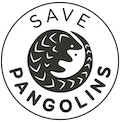Save Pangolins joined IUCN SSC Pangolin Specialist Group members and other experts from 16 countries gathered in Singapore June 28-30th to create the first ever regional strategy to conserve the Critically Endangered Sunda pangolin.
The workshop was the first in a series to develop detailed, regional strategies for each of the eight pangolin species, which will also be bolstered by the development of national action plans. Together the regional and national plans will inform one consolidated global strategy for pangolin conservation in the next decade.
Building on previous initiatives and plans targeting pangolins overall, including the 2015 Pangolin Range States Meeting in De Nang, Viet Nam hosted by the governments of Viet Nam and the United States, and the global conservation action plan ‘Scaling Up Pangolin Conservation,” this workshop focused specifically on regional priorities for the Sunda pangolin, Manis javanica, which occurs in Southeast Asia.
A range of interventions will be needed to conserve the Sunda pangolin, according to the group of more than 50 conservationists, researchers and wildlife authorities. Priorities include combatting trafficking, strengthening legal policies, and building capacity for effective enforcement.
“The sheer scale of the pangolin trade is epic, and time is of the essence,” says Dr. Dan Challender, Chair of the IUCN SSC Pangolin Specialist Group. “The only way to stop the decline is through implementation of a clear strategy and a unified effort to stop the demand, supply and trafficking. As all eight pangolin species are protected under Appendix-I of CITES, governments, civil society and other stakeholders need to work to ensure this international protection is supported by robust regional and national action.”
Stopping the poaching of pangolins will require engaging local people who live within or close to Sunda pangolin habitats, according to the group. This could involve hiring community members as rangers, or devising incentives for locals to protect pangolins. Additional research is needed to understand the drivers and motivations behind consumption of pangolin products, and what will be successful in changing consumer behavior away from unsustainable consumption.
Workshop attendees also shared new information to support an updated assessment of the Sunda pangolin for The IUCN Red List of Threatened Species. Listed as Critically Endangered on the IUCN Red List this species is threatened by high levels of hunting and poaching for its meat and scales.
The workshop was developed by the IUCN SSC Pangolin Specialist Group in partnership with the IUCN Asian Species Action Partnership and Wildlife Reserves Singapore. It was sponsored by the Wildlife Reserves Singapore Conservation Fund. A representative of the IUCN SSC Conservation Planning Specialist Group facilitated the workshop, following IUCN best-practice guidelines for species conservation planning and guiding participants through an objective process to identify issues of concern and priority conservation actions for the species.
“Ensuring the survival of a critically endangered species like the Sunda pangolin requires collaboration and commitment,” says Nerissa Chao of the IUCN SSC Asian Species Action Partnership. “This has been a terrific moment to bring people together from across the region.”
“There’s a real sense of urgency but also a sense optimism,” says Sonja Luz of Wildlife Reserves Singapore. “We can change the plight of the Sunda pangolin to make it a wildlife success story.”
Recommendations from the workshop will be published online later in 2017 at www.pangolinsg.org.
Written by Keri Parker and Paul Thomson. Originally posted on www.pangolinsg.org
























